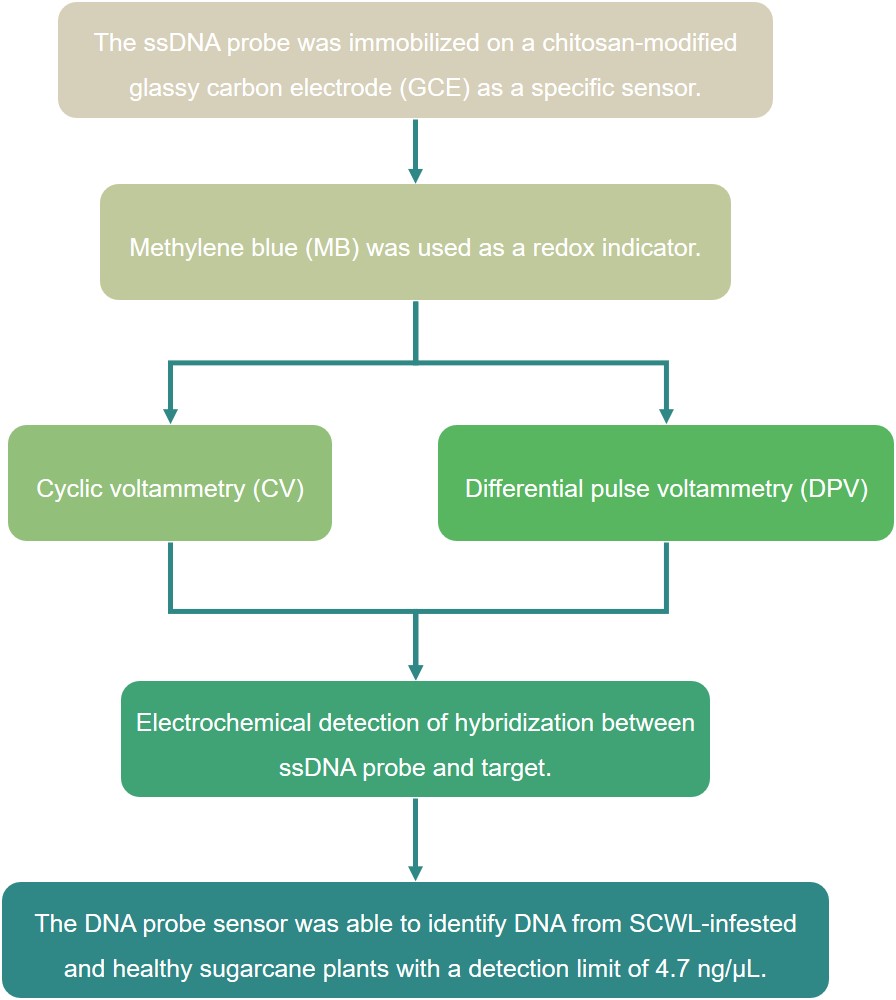Electrochemical DNA biosensors are of practical value in plant pathogen detection, and Lifeasible offers DNA biosensors based on nucleic acid hybridization as one of the means of plant pathogen analysis and detection. We use DNA as the sensitive element, fix the DNA on the electrode, and through the electrode, the biological signals of DNA interaction with nucleic acids, free radicals, compounds, etc., are transformed into detectable physical signals such as acoustic waves, electricity, light, etc. This can meet your purpose of qualitative and quantitative detection of plant pathogens.

We use gold-sulfur bonds or antigen- or antibody-specific interactions to immobilize a segment of single-stranded DNA (ssDNA) of a specific sequence on the electrode surface. The immobilized ssDNA is specifically recognized by ssDNA of the complementary sequence in the solution to form double-stranded DNA (dsDNA). We detect the presence of a target by recognizing changes in the electrochemical response signals of hybridization indicators for ssDNA and dsDNA and also by recognizing markers on the complementary strand. The value of the response signal changes with the concentration of the complementary sequence ssDNA. Within a certain range, the response signal is linearly related to the concentration of the substance to be tested, thus achieving the purpose of qualitative and quantitative detection of plant pathogens.

Electrochemical DNA biosensors use DNA probes to hybridize with complementary strand DNA or RNA through base-specific recognition, using hydrogen bonding and base stacking as non-covalent bonding forces, which can easily enable the detection of complementary strand DNA or RNA. Lifeasible offers highly sensitive and cost-effective DNA biosensors based on nucleic acid hybridization forplant pathogen detection needs. Please feel free to contact us for more information.